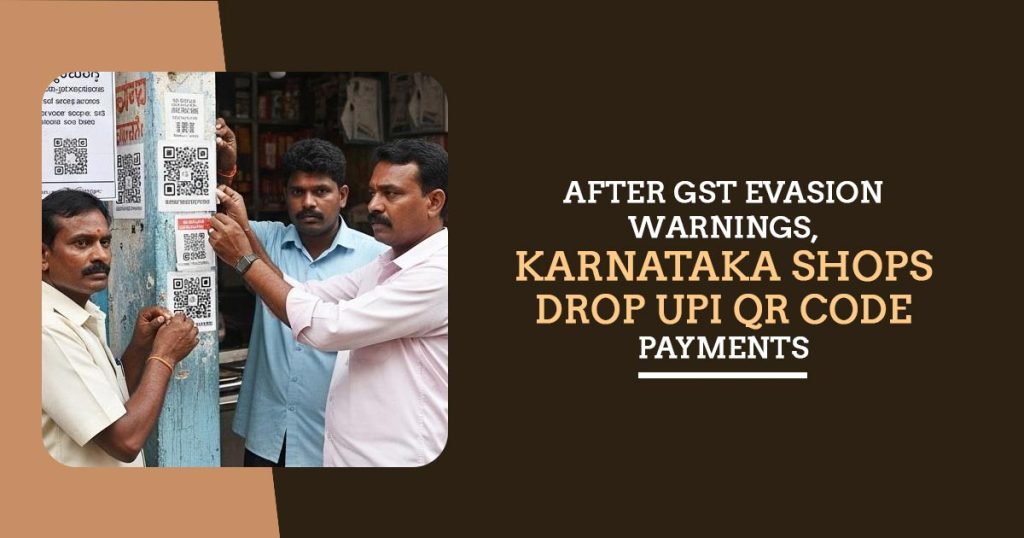
The Karnataka Tax Department has started sending GST demand notices to traders who have sales exceeding Rs 40 lakh, focusing on those who receive payments through UPI (Unified Payments Interface).
As a result, many small shop owners and traders in Bengaluru are now being cautious about accepting digital payments. Some have even removed UPI QR code stickers from their shops due to this increased scrutiny.
Read Also: Karnataka GST AAR Signals Possible U-Turn on Tax Exemption for Namma Yatri
“Early morning shocker!! Laundry guy called me to tell me that he no longer accepts UPI payments… He will only accept cash…” wrote Dipu Nair on X.
Till now, 14,000 cases have been identified. Receipts exceeding Rs 40 lakh have received GST notices. Out of those, how many are registered and compliant are being checked under the field officers, Vipul Bansal, Commissioner of Commercial Taxes, mentioned.
Information has been received by the commercial tax department from UPI service providers concerning the obtained payments via traders between FY 2021–22 and 2024–25.
Traders received notices from the Karnataka Commercial Tax Department on July 11, who had evaded the GST despite earning more than Rs 40 lakh annually via UPI payments.
There is no panic situation, Bansal added, citing that currently only notices have been sent. People can explain it as per their situation, and we will decide. Person dealing merely in exempt goods or who is under the composition scheme, the tax implication is minimal.
Among shopkeepers, UPI QR codes have become a recognised payment approach and are being used for the majority of small value transactions instead of cash, as COVID and the absence of change with merchants has revised the behaviour of customers in the previous 4 to 5 years, including rewards and cashback.
Recommended: Kerala HC: GST Dept Cannot Illegally Seize and Transfer Cash to IT Dept U/S 132A
Some merchants ask for cash payment as they have removed QR codes; this behaviour change is probably driven by customers.
Customer drives the revolution of UPI and not by traders. If one trader denies UPI, another will accept it as the demand comes from the customer, Bansal stated.
In Karnataka, nearly 1 lakh dealers are using the composition scheme and filing 1% GST. It is good to ensure that others comply with the regulation. The law is to be executed and not overlooked, Bansal expressed.
Karnataka, which attained 7.73% of India’s total UPI transactions in May, ranked second after Maharashtra (13.19%).
Sudhakar Sheenappa Shetty, a shopkeeper from North Bengaluru, obtained a GST notice citing that he was speaking with other shop owners to take up the case before the government.
“We continue to allow UPI payments. Customers want UPI. We will see how this can be worked out,” Shetty cited.
Some people on social media admitted to the government’s move. “People making Rs 50 lakhs worth of transactions aren’t small or poor vendors. It is Rs 50 lakh plus only from online payments. We wouldn’t even know if they have 2 QR codes and if it is 2 accounts with Rs 50 lakhs. This had to happen. I am happy the GST department has finally woken up. #UPI payment,” an X handle said.
If this trend is carried on, then the customers will encounter the hardship of paying in cash, as UPI is easier. Some people went to ATMs for the first time in a few years to withdraw cash.
Another X user, Shivaraj Kumar, mentioned on X, “The GST department is issuing notices to small vendors for tax payment based on UPI transactions. Already, I am seeing a trend in vendors asking for cash instead. This could be a big hurdle for UPI henceforth.. just beginning.”









